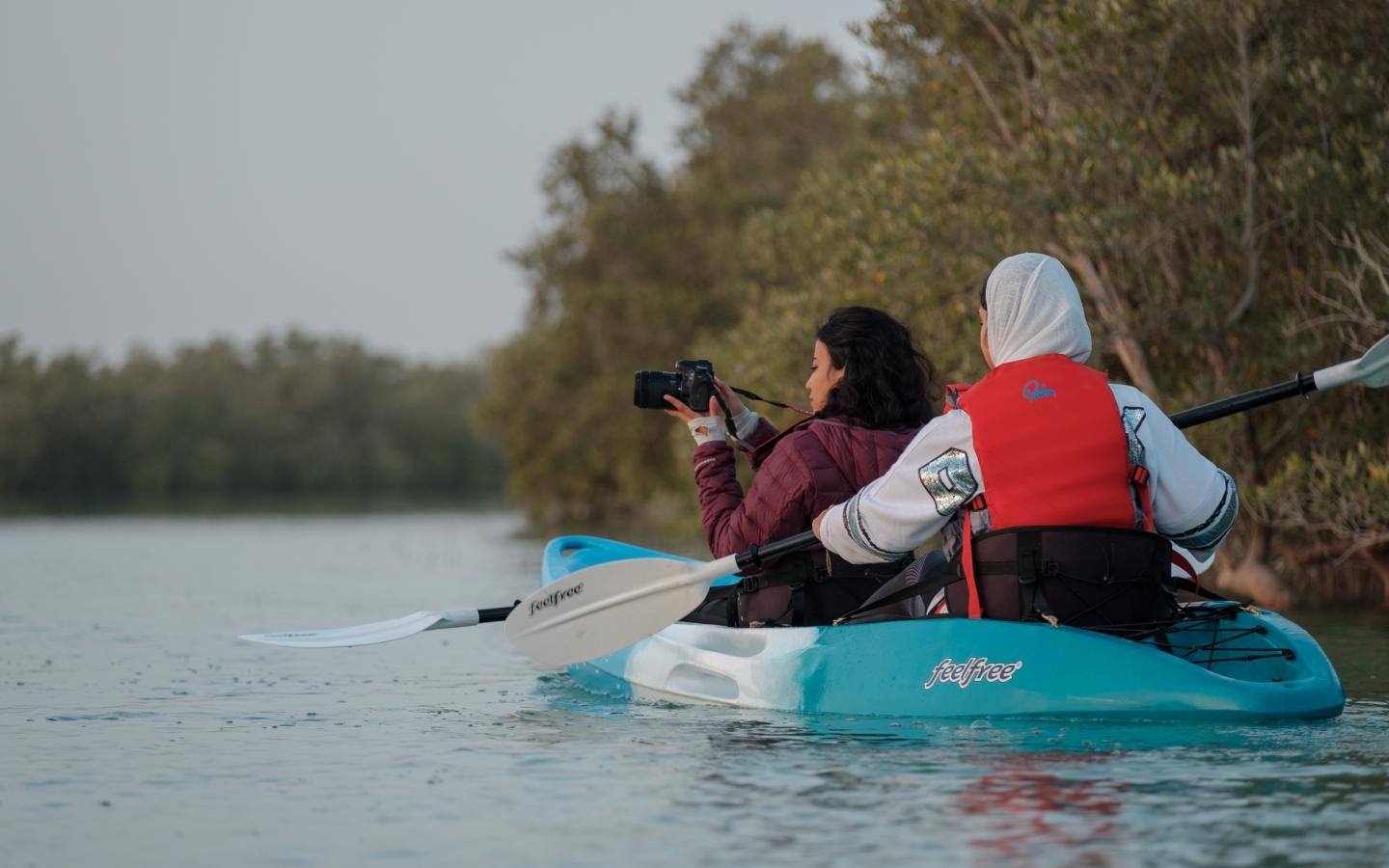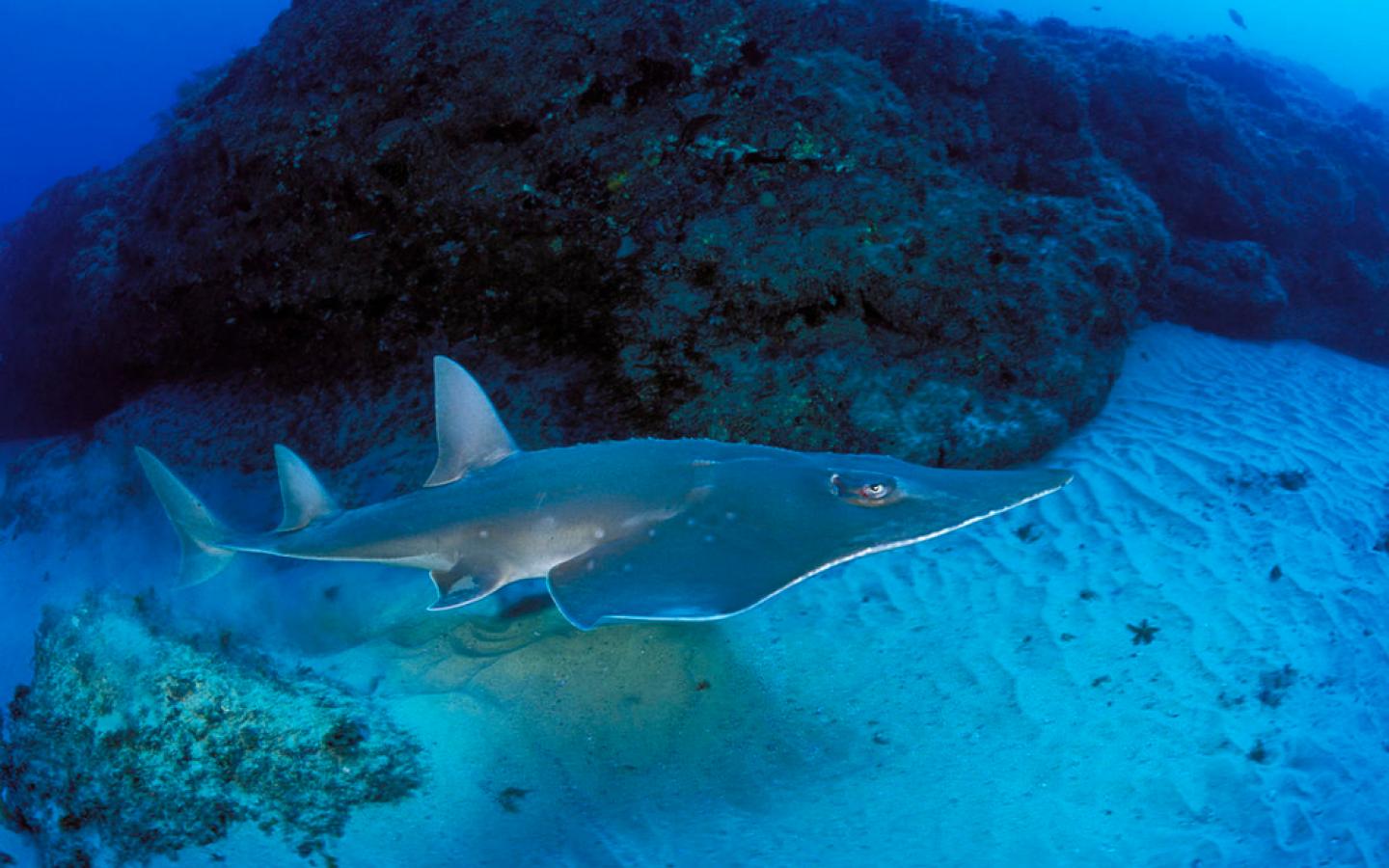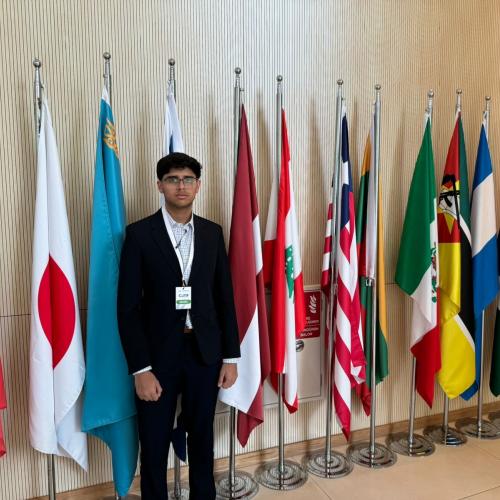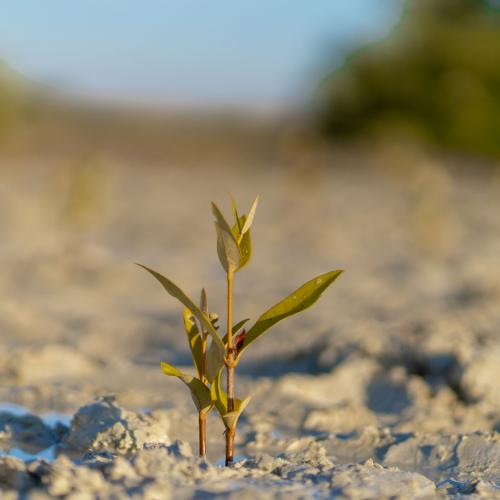The Promise of Nature-Positive Tourism in Umm Al Quwain

By Sheikh Majid Bin Saoud Bin Rashid Al Mualla, Chairman of the Department of Tourism and Archaeology in Umm Al Quwain and Chairman of the emirate’s Sustainable Blue Economy Strategy

Ecotourism has emerged as one of the most important drivers of the global tourism market, valued at an estimated $200 billion in 2022 and making up nearly 10% of this vital economic sector. Ecotourism is projected to continue to grow at a rate of 12.9% annually during the next decade.
Much of this tourism depends on the quality of natural ecosystems, as well as their associated biological diversity and wildlife. This is best illustrated by a study conducted by the World Bank, which found that coral reefs for instance represent a significant economic value estimated at about $36 billion annually in the form of activities such as coral reef diving, wildlife observation and general tourism in the vicinity of the coral reefs.
The UAE pays great attention to ecotourism as it is one of the types of sustainable tourism that contributes to the preservation of natural and cultural heritage. During the last two decades, ecotourism has witnessed significant growth as a result of an increase in environmental awareness among travellers and tourists, with tourists specifically seeking out experiences that are aligned with sustainability standards during their stay, and the preservation of the environment and national heritage.
The Emirate of Umm Al Quwain has designed a distinct and integrated tourism model that prioritizes the preservation of coastal and desert ecosystems whilst also ensuring the authenticity of the rich archaeological and heritage sites that characterize the emirate. One of the most important tourist sites that supports Umm Al Quwain’s aspirations and latest environmental best practices is the pristine “Mangrove Beach” which overlooks Al Sinniyah Island and the coastal lagoon Khor Al Yafra, and offers multiple public recreation activities through which visitors can enjoy the exceptional beauty of its flora and fauna.
A Coastal Ecosystem full of Natural Capital and Cultural Value

One of the most prominent natural sites in the emirate is Khor Al Beidah, a multi-system seascape that covers more than 138 km2 and embraces a variety of critical marine habitats such as mangroves, seaweeds, mud flats, sabkha, hard rock bottom, and local salt meadows. The coast lagoon is also a valuable natural blue carbon sink, with the potential to sequester and store large amounts of carbon. These habitats are home to many species listed on the International Union for Conservation of Nature's list such as the Halavi Guitar fish (Glaucostegus halavi) which is facing extinction. The coastal lagoon is also home to a large colony of the Socotra cormorant, which represents 15-35% of the bird's population in the world.
In an adjacent part of the khor lies Al Sinniyah Island, which is distinguished by its historical, archaeological and natural values. One of the largest natural islands in the emirate, Al Sinniyah features a green belt of lush mangroves and houses many archaeological sites such as a Christian monastery and the oldest pearl diving city. It is also the home of the founders of the emirate of Umm al Quwain and its tribes.
Protecting the past and the future

Umm Al Quwain is characterized as a fertile land of natural resources and one of the country’s richest areas in terms of marine and coastal biodiversity, with is unique coastal vegetation of mangrove trees and seagrass beds. Recognizing this rich natural capital, the Umm Al Quwain government launched its pioneering Sustainable Blue Economy Strategy (SBE) 2031 during the World Government Summit 2022, with an aim to design and implement Nature-based Solutions (NbS) and nature-positive tourism across the emirate.
Featuring eight key projects, the strategy charts the course for Umm Al Quwain to become a global model for the blue economy. It also establishes the Sustainable Blue Economy as a key pillar of the local economy, with plans to contribute 40% to the emirate’s gross domestic product by 2031 and achieve a positive carbon outcome.
As part of this endeavour, the Blue Economy Office launched the first natural reserve to protect and renew the marine and coastal environment in the emirate of Umm Al Quwain. The Umm Al Quwain Mangrove Reserve represents the first environmental project supervised by the office as part of the Sustainable Blue Economy Strategy 2031, and aims to protect the natural environment, through optimal use of resources, and to contribute to the development of ecotourism in the emirate.
The reserve includes the Mangrove Beach project, which allows visitors to learn about the importance of mangroves and explore the natural areas and coastal environment.
Scaling up Nature-based Solutions
The emirate’s SBE strategy was developed in cooperation with Emirates Nature-WWF and born out of the work conducted through the UAE’s flagship “Nature-Based Solutions” (NbS) project. As part of the project, environmental scientists assessed the diversity of marine life and blue carbon value in a vital coastal area in Umm Al Quwain, which, along with Al Sinniyah Island, makes up the undisturbed and pristine marine landscapes on the western coast of the country.
During the coming years, Umm Al Quwain will continue its work to design plans for blue economy projects and integrate all the environmental and cultural components that characterize the emirate, in order to protect our coastal ecosystems and biodiversity in a sustainable manner. The adoption of sustainable and innovative ideas will also contribute towards achieving our vision of enhancing nature-positive ecotourism.



